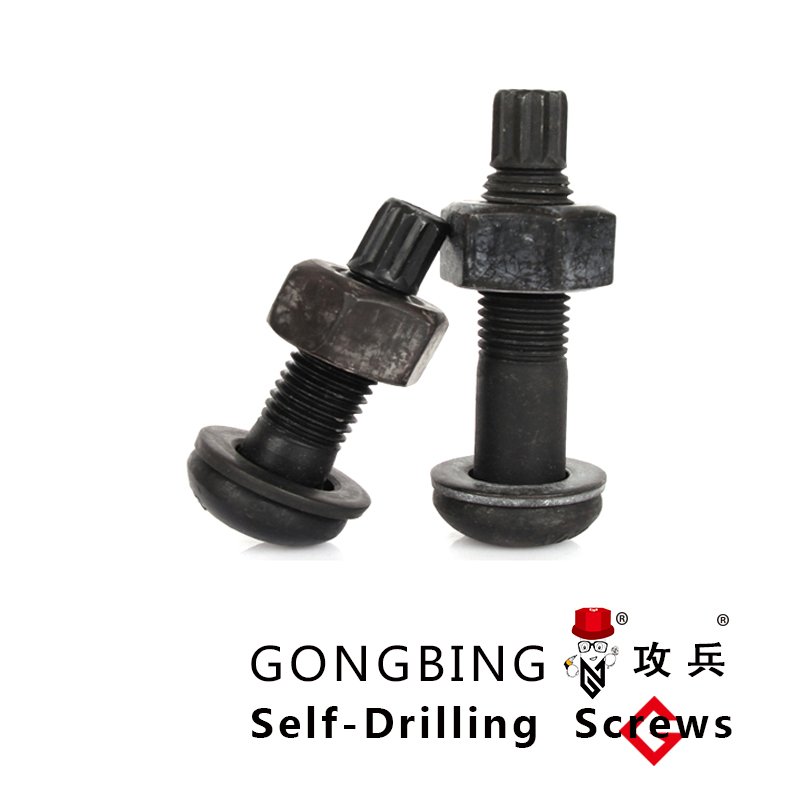self drilling metal drywall anchors
Understanding Self-Drilling Metal Drywall Anchors
When it comes to hanging items on drywall, selecting the right type of anchor is crucial for maintaining the integrity of your wall and ensuring that your items are securely fastened. One of the most effective options available are self-drilling metal drywall anchors. These innovative fasteners have become increasingly popular among DIY enthusiasts and professionals alike due to their ease of use and reliability.
What Are Self-Drilling Metal Drywall Anchors?
Self-drilling metal drywall anchors are specialized fasteners designed for use in hollow walls, like drywall. Unlike traditional anchors that require pre-drilling a hole, self-drilling anchors feature a sharp, pointed tip that enables users to screw them directly into the drywall without any external drilling tool. This not only saves time but also simplifies the installation process, making it an attractive option for those who might not have extensive tools or experience.
Advantages of Self-Drilling Metal Drywall Anchors
1. Ease of Use One of the foremost advantages of self-drilling metal drywall anchors is their straightforward installation process. Users can simply use a screwdriver or a power drill to install the anchors, allowing for quick setups with minimal tools required.
2. Strength and Stability Made from durable metal, these anchors provide robust support for heavier items. Unlike plastic anchors, which can easily break or bend, metal anchors are designed to hold substantial weight. They can support items like heavy picture frames, shelving units, and even flat-screen TVs when installed properly.
3. Versatility Self-drilling metal anchors are suitable for a variety of applications, both for residential and commercial settings. They can be used in homes, offices, and retail environments to securely mount anything from décor to heavy appliances.
4. Reduced Damage The ability to drill directly into the drywall minimizes the risk of wall damage. Since there is no need for extensive pre-drilling, the chance of cracking or compromising the drywall structure is significantly reduced, preserving the integrity of your walls.
5. No Expansion Needed Many traditional anchors rely on expansion to secure themselves in place. However, self-drilling metal anchors utilize the material of the drywall itself for support. This means that once they are in place, they do not require any additional tightening or maintenance.
Choosing the Right Self-Drilling Metal Drywall Anchor
self drilling metal drywall anchors

Even though self-drilling metal drywall anchors are suitable for a multitude of tasks, it is essential to choose the correct type based on your specific needs. There are several sizes and weight ratings available; thus, assessing the weight of the object you intend to hang is crucial.
For lighter items (up to 25 pounds), smaller anchors may suffice. However, for heavier applications, heavier-duty anchors rated for upward of 50 pounds may be necessary. Always check the manufacturer's specifications and instructions to ensure proper installation and to guarantee the anchor's performance.
Installation Tips
To install a self-drilling metal drywall anchor, follow these simple steps
1. Identify the Location Use a stud finder to locate the best spot for your anchor. If attaching to a stud, you may not need an anchor at all.
2. Mark the Spot Use a pencil to mark the area where you will insert the anchor.
3. Insert the Anchor Position the anchor over the mark and use a screwdriver or power drill to drive it into the drywall until it is flush with the surface.
4. Attach Your Item Once the anchor is installed, you can securely attach your item using a screw that fits the anchor.
Conclusion
Self-drilling metal drywall anchors present an effective solution for anyone looking to hang items securely on drywall. Their ease of installation, strength, and versatility make them a valuable addition to any toolkit. By selecting the right anchors and following proper installation techniques, DIY enthusiasts can confidently enhance their living spaces without compromising the integrity of their walls.
-
Weatherproof Plastic Expansion Anchors for OutdoorNewsJun.06,2025
-
Sustainability in the Supply Chain: Eco-Friendly TEK Screws ProductionNewsJun.06,2025
-
Load-Bearing Capacity of External Insulation FixingsNewsJun.06,2025
-
Double Head Bolts: Enhancing Efficiency in Industrial MachineryNewsJun.06,2025
-
Corrosion Resistance in Chipboard Screws: Coatings for Wholesale DurabilityNewsJun.06,2025
-
Butterfly Toggle Bolts : Enhancing Structural ResilienceNewsJun.06,2025
